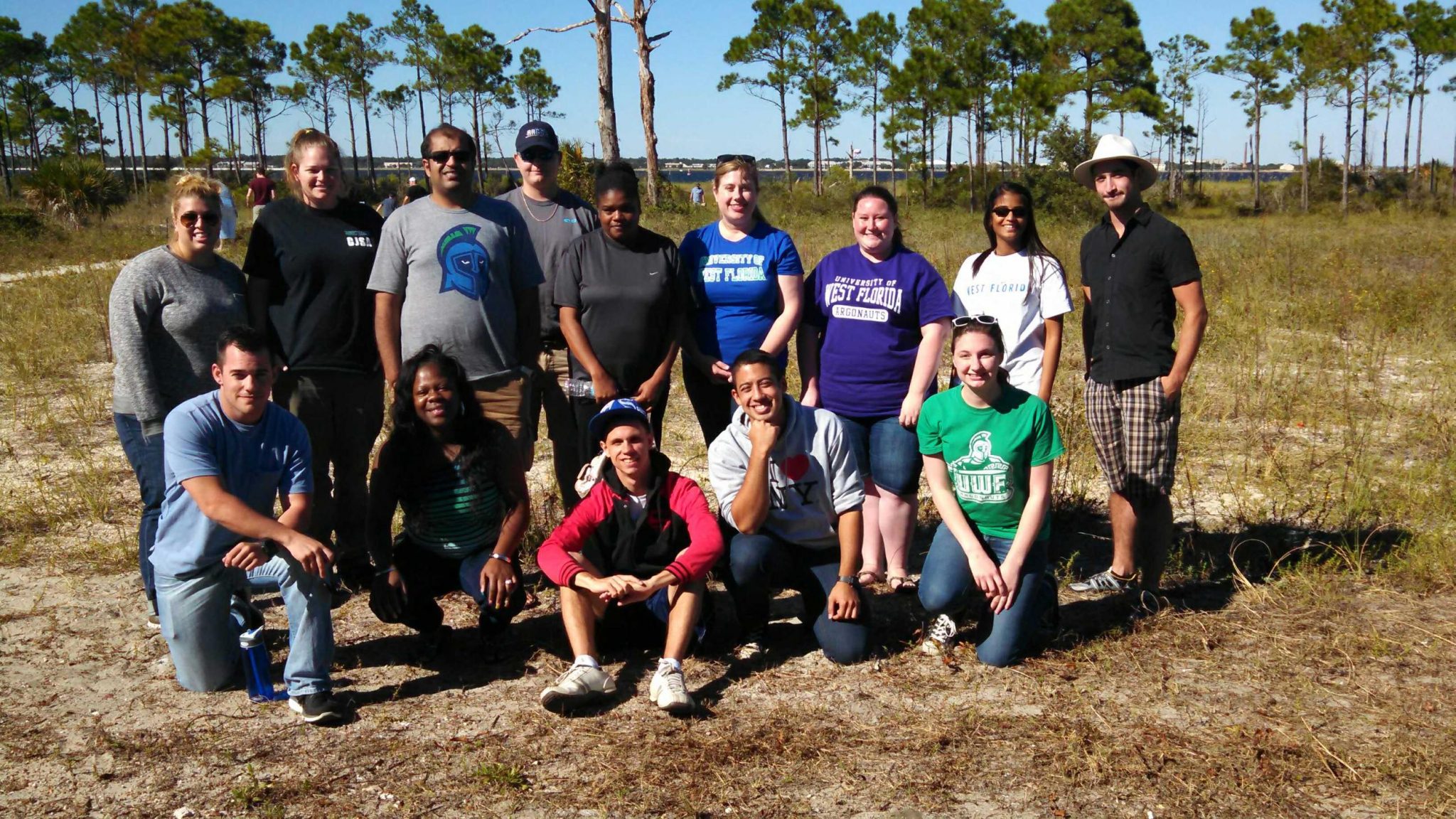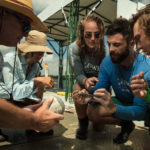UWF criminal justice students conduct research at Fort Pickens
Criminal justice students at the University of West Florida recently conducted a study at Fort Pickens to determine how campers felt about the potential for crime occurring at their campsites.

Drs. Sara Evans and Jamie Snyder, assistant professors of criminal justice, teamed up to create a course titled, “Code of the Campground: Fear of Crime and Perceptions of Risk.” They developed the course to allow students the opportunity to conduct research in a real-world, professional setting.
Over the course of four weekends in September and October, 10 undergraduate and three graduate students spent time studying in the classroom, collecting data at Fort Pickens and presenting their final professional posters to faculty members. Student reflections were woven throughout the course to provide students with an opportunity to share how their expectations for the course aligned with their experiences. Snyder said that the student reflections were overwhelmingly positive.
“The students were surprised to see how responsive and polite the people were when they approached them to conduct the survey,” Evans said. “The very first day we were there a man approached us to ask what we were studying, and one of our students was eager to tell him we were studying how campers perceive crimes occurring at campsites. The students perked up when he responded saying, ‘Crime at our campsites? That doesn’t happen here!’ They were so excited to see that the theories they had formed were aligning with what campers were telling them.”
Snyder said that the students were enthusiastic about their research once they realized that the stories many campers were telling them aligned directly with what they hoped to find in their research.
Frances Abderhalden, a graduate research assistant in the department of criminal justice, was able to participate as both a student and a leader in the course. Abderhalden plans to be a criminal justice professor in the future, and this course allowed her the chance to teach and learn simultaneously.
“I was able to foster my skills as a researcher through real-world application,” she said. “Helping lead undergraduate students and seeing them emerge from this program with new-found confidence solidified my goal to be a professor.”
This course was funded in part through the College of Education and Professional Studies Emerge Program, developed to help faculty design and utilize high-impact practices to deepen student learning and engagement and raise levels of performance, retention and success for all students. As part of the course, students were separated into groups to conduct the survey and collect data. They were also given feedback throughout the course and participated in continuous reflection, both of which are key features of a high-impact practice.
Preparing students for life after college is achieved through courses where students are able to develop professionally, go beyond the classroom and turn what they learn into action. Drs. Evans and Snyder both agreed that this course gave students an experience that they couldn’t have gotten from a classroom alone.
“The Emerge Program is important for enhancing students in their education because it provides them with a different experience,” Snyder said. “Being able to marry the in-classroom experience with an out-of-classroom experience gives students a unique educational experience.”


